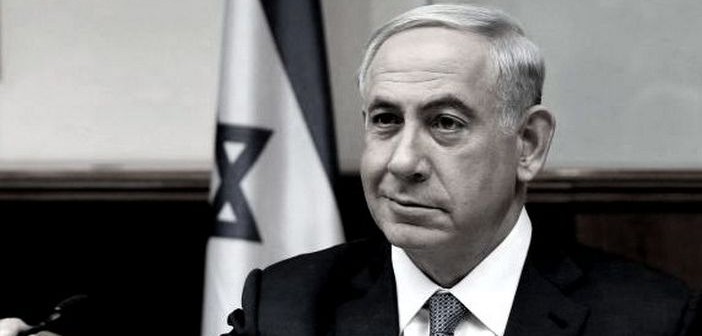Those of us who know the nature of the beast could not have been surprised by the elections result in Israel. I, like many of my friends, was also relieved that a liberal Zionist government was not elected.
It would have allowed the charade of the ‘peace process’ and the illusion of the two state solution to linger on while the suffering of the Palestinians on the ground continues. As always Benjamin Netanyahu himself provided the inevitable conclusion when he declared the end of the two state solution – inviting us all to the long overdue funeral of an ill-conceived solution that provided Israel with international immunity for its colonialist project in Palestine. Although Netanyahu retracted slightly under American pressure from this declaration, we can assume judging by his policies in the past that what would matter would be his government’s unilateral creeping annexation of more land in the West Bank. The ill fated Oslo accord divided the West Bank into area A (Palestinian Rule), B (joint rule) and C (Israeli rule). The annexation of area C, with the kind of government that was elected is now a question of when, and not if.
A liberal Zionist government is what the Western world wished the Israeli electorate would have voted for. Such a government would have allowed the West to forget for another few years the Palestinian plight and its connection to the upheaval in the Middle East as a whole and Europe’s own multicultural challenges.
Many of the European Jews, the Ashkenazim, who invented the Zionist project and implemented it in its first one hundred years, were also craving for such a liberal government that would shield them from international condemnation and allow them to hold on to the achievement of the settler colonialist state they have created.
This was a wishful thinking that was exposed when the world and local pundits unrealistically predicted a victory for Liberal Zionism and even the exit poll of Israel’s finest statisticians was based on the same logic leading to a huge media fiasco.
It is worthwhile to begin an initial analysis of the Israeli elections with closer attention to this fiasco. An important part of those who vote in Israel for Likud belong to the second generation of Jews who came from Arab and Muslim countries. They were joined this time by settler communities in the West Bank who voted en bloc for Benjamin Netanyahu. The Arab Jews voted for Likud much more than they voted for Netanyahu and the settlers voted for Netanyahu at the expense of their new political home, ‘The Jewish Home’party, so as to ensure that the Likud would be the largest party in the next Knesset. Neither group was entirely happy with their choice and were not so proud to wear on their sleeves their decision to vote yet again for Benjamin Netanyahu.This is why many of them did not cast in the exit ballot the same vote they threw into the real one. The result was quite catastrophic to all the renowned pollsters of the Israeli Media. They missed the headline that should have been announced when the exit polls were done – a smashing victory to the Likud in 2015 and a pathetic result for the liberal Zionist camp inside Israel. The more exciting news was the success of the Palestinian citizens to unite and reach a respectable parliamentary representation.
These three outcomes: an invigorated Likud, a defeated Labour party and a united Palestinian representation can either be ignored by the international community or serve as a catalyst for new thinking on the evergreen subject of Palestine. The victory of the Likud despite the social unrest in Israel and the unprecedented low standing of the Jewish state in the international community indicate clearly that there will be no change from within Israel in the near future. On the other hand, the Labour party has maximised its potential – it is not likely to do better – and hence it does not offer an alternative. The main reason for this is that it is not an alternative. Israel in 2015 is still a settler colonialist state and a liberal version of this ideology cannot offer a genuine reconciliation to the native people of Palestine. Jewish voters in Israel ever since 1977 prefer the real thing and reject the paler version of Zionism. Labour was long enough in power for us to know that it could not offer even the most moderate Palestinian leaders any deal that would have granted them a genuine sovereignty – be it only overa fifth of their homeland. The reason is very simple – the raison d’être of a settler colonialist society is displacement of the natives and their replacement by the settlers. At best natives can be confined into gated enclaves, at worst they are doomed to be expelled or destroyed.
Labour Zionism, and even its more leftist sister, MERETZ based their more benign attitude towards the Palestine question on the same racist logic that guides the rest of the Zionist group. The supreme value is to ensure at all cost Jewish majority. The left Zionist warn again and again that if the occupation continues the Jewish majority would disappear and Israel would be forced to be an apartheid state. This is a very bizarre line of argument for political groups that pride themselves for adhering to universal human and civil rights’ values and principles. Surely, as the Palestinians are natives and not immigrants as most as the Jews are, their demographic growth is natural and a blessing not an existential threat (of course genuine progressive people would also not be deterred by increase in number of immigrants, but this is irrelevant in this case in any way). Instead of arguing for social and economic justice, or at least a more liberal system that respects individual rights, the ‘progressive’ Zionists focus on strategies to ensure Jewish demographic majority as pre-condition for keeping Israel as democracy. No wonder, the public in Israel prefers a more straight forward discourse that does not play the charade of democracy and explicitly locates ethnic purity and supremacy at the top of the local value system.
The conclusion for the international community should be clear now. Only decolonisation of the settler state can lead to reconciliation. And the only way to kick off this decolonisation is by employing the same means exercised against the other long standing settler state of the 20th century: Apartheid South Africa. The Boycott, Divestment and Sanctions (BDS) option never looked more valid and head on than it does today. Hopefully this together with popular resistance on the ground would entice at least some of the second and third generation of the Jewish settler community to help and stop the Zionist colonisation project. Pressure from without and from the resistance movement from within are the only way to force Israelis to reframe their relationship with all the Palestinians, including the refugees, on the basis of democratic and egalitarian values. Otherwise, the Likud would rise to 40 Mandates in the next elections on the wave of the inevitable next outraged Palestinian uprising.
There are two reasons why this is still feasible. One is the united Arab list (a parliamentary list that combined all the Palestinian parties that in the past ran separately in the national elections). It will have no impact whatsoever on the Israeli political system. In fact like the Palestinian Authority (PA) that was established in the wake of the 1993 Oslo peace accord, the days of Palestinian representation in the Knesset may be numbered. If a united list can have no impact, and if a disempowered PA does not satisfy even liberal Zionists, then the time has come to look for new bodies of representations and action.
The united list’s importance lies elsewhere. It can ignite the imagination of other Palestinian communities about the possibilities of unity of purpose and orientation. Islamists and secular leftists can work together for a better future is a message which can have far reaching implications not only for Palestine and Israel, but for Europe as well. The united Arab list represented a group of native Palestinians who know the Israelis well, are deeply committed to democratic values and have risen in importance among the rest of the Palestinians after years of being marginalised and almost forgotten.
The second reason for hoping that new alternatives would emerge is that despite all its nastiness and callousness, the settler colonial Zionist project was not the worst in history. It did not genocide the local population and its dispossession project was not completed. This does not mean that it will not get worse or that one should underestimate the suffering of the Palestinians. What it means is that the main impulse among Palestinians is not for retribution but for restitution. The wish is to live a normal life – something Zionism denied all the Palestinians ever since its arrival in Palestine in the late 19th century. Normal life means an end to the discriminatory apartheid policies against the Palestinians in Israel, the end of the military occupation and siege of the West Bank and the Gaza Strip and recognition of the right of the Palestinian refugees to return to their homeland. The quid pro quo is accepting the Jewish ethnic group that emerged in Palestine as part of a new political outfit based on principles that would be agreed upon by all concerned.
The international community can play a positive role in bringing this vision about if it adopts three basic assumptions.
The first is that Zionism is still colonialism and hence anti-Zionism is not anti-Semitism but anti-colonialism. The second is that if it will leave behind the exceptionalism it granted Israel over the years, mainly in the realm of human rights, it has a better chance of playing a constructive role towards safeguarding these rights in the Middle East as a whole.
But finally, we should all be aware that the window of opportunity for saving innocent lives in Israel and Palestine is rapidly closing down and it is urgent to forsake old formulae for peace that did not work and start looking for more viable alternatives.





